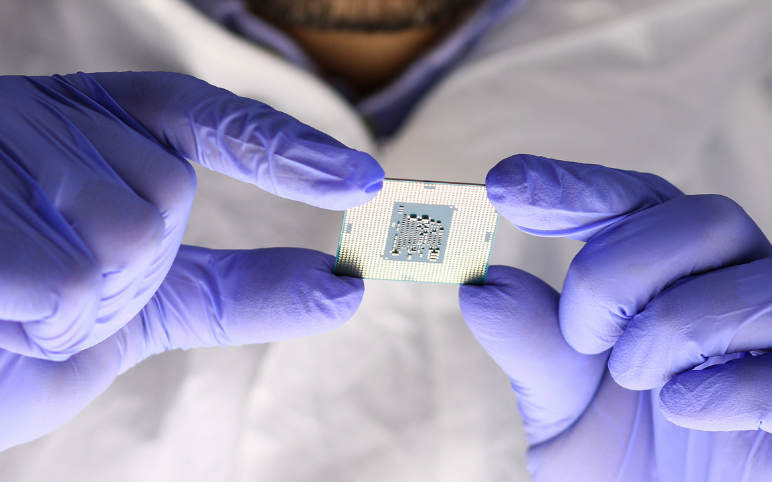Navigating the Most Use Cases of Robotic Process Automation (RPA) in Healthcare
Sep 14, 2022
Table of Contents
In today’s highly competitive and dynamic business environment, every organization works in the direction to improve its process quality, speed, and productivity. To handle these critical aspects and provide better results, we have several new technologies in the market that can address the underlying issue in the system and provide a better outcome. Among the pool of solutions, Robotic Process Automation (RPA) is an emerging and evolving technology that different organizations are actively working to implement in their system delivery.
There are several different types of Robotic Process Automation in the market today that can perform incredibly specialized to custom functions. As per the studies conducted so far, it is observed that Robotic Process Automation over a short period of time has been able to deliver real-world results in terms of reducing error rates, cost of operation, quality of service delivery with lower transaction processing time, and greater throughput capacity. Owing to immense benefits, organizations across sectors tend to implement automated processes in at least one or more functions or business units to remain competitive in the market and generate substantial results.
Downloads
Article in PDF
Recent Articles
- Does the use of Assistive Technologies in Autism Spectrum Disorder Payoff?
- Pulling the apoptotic trigger for necrosis
- How are Technological Trends and Innovations Reshaping the Dementia Care?
- Gut bacteria can stop cancer drugs from working
- Biochips: An Evolving Technology Driving the Future of Healthcare Market
What is Robotic Process Automation?
Robotic process automation is used for bots or software programs that partially or fully automate human activities requiring rule-based and repetitive work. RPA can perform repetitive tasks at a much faster rate and can replace humans. It may use artificial intelligence and is often regarded as software robotics or digital workers. RPA is easy to implement and is quite flexible to update with a change in the system.
Businesses are employing Robotic Process Automation to perform tasks such as data entry, processing standard transactions, or responding to simple customer service queries. One of the most basic examples of Robotic Process Automation is “chatbot.” Chatbots in a website, in most cases, are RPA tools, not humans, and can handle some of the basic repetitive queries put forward by the user. The organization can significantly reduce the workforce with the Chatbots on the website or on the app. A single chatbot can reduce the workforce count as it can handle thousands and lakhs of queries simultaneously. With Robotic Process Automation in place, organizations can run more efficiently, and employees can devote their time to other valuable activities.
Why is Robotic Process Automation Important in the Healthcare industry?
Robotic Process Automation can be implemented in the healthcare industry across different segments. From patient admission to claim settlement and clinical documentation to hospital management, all segments can implement RPA to boost productivity and improve compliance. Robotic Process Automation can bring the automation process and ensure a high accuracy level. To the healthcare organization and hospitals, it assures the resources’ workflow reduction and revenue increase. Moreover, organizations can strategically utilize the resources and staff for better workflow.
Over the past decade, there has been a boom in Robotic Process Automation implementation across industries and different sectors. Several organizations are on their journey to adopt RPA in their business operations.
What are the Most Common Robotic Process Automation Use Cases In Healthcare?
There are several use cases of Robotic Process Automation in Healthcare. As technology grows, applications and uses are evolving at an unprecedented rate. However, some of the major use cases include –
Appointment Scheduling
Appointment scheduling is one of the primary steps in the treatment journey and is considered a manual process. However, over the two years, due to Covid-19, there has been a boom in the online appointment scheduling process. Patient engagement and satisfaction levels are expected to be higher with Robotic Process Automation than with manual scheduling, as it reduces wait times and provides healthcare staff with all the necessary information beforehand.
With Robotic Process Automation, the appointment scheduling process is getting much simpler and more effective. RPA bots can automatically scan the doctor’s availability, working hours, expertise, and skills and can provide patients with time slots based on their availability. Most Robotic Process Automation is designed to collect the symptoms from the patient for better reference. The basic symptoms collected by the RPA can be provided in advance to the concerned doctor. The Robotic Process Automation software can also manage reminders and send patients takeaway notes. Similarly, it may also feed one copy available to the doctor’s system. If the Appointment Scheduling is done manually, it may take many resources and also take a huge amount of time.
It is observed that rescheduling, canceling, and missed appointments in the healthcare system lead to high expenditure. But with Robotic Process Automation in place, the activities like scheduling, updating, or canceling can be done with just one click while sitting at the home, office, or any other location. Similarly, there is a huge scope to reduce the time gap between appointment scheduling and actual visits.
Post-treatment Care
Based on the data provided by the patient or used, Robotic Process Automation can accurately diagnose the diseases. It can maintain, manage, and deliver a few mundane suggestions. It can help healthcare providers to engage in other activities. Similarly, Robotic Process Automation can also ensure better post-treatment care. Several RPA can be designed to remind patients about necessary activities such as taking medication, taking nutrients, or following a meal plan. It can be a companion that can help the patient to recover after leaving a health facility at home. Moreover, Robotic Process Automation can manage and regularly monitor the necessary data, such as blood pressure, heart rate, etc. If any sudden changes are noticed, it can help the patient to connect with the doctors. Overall, Robotic Process Automation is like a communication tool or device that bridges the between the hospital and the home. It can significantly reduce the healthcare burden, as only beds may be available for more critical care.
Managing Claims
Processing insurance claims is one of the most concerning segments in the healthcare industry, with a huge scope for manual errors. The claims settlement involves entering, processing, and assessing data that requires a high level of accuracy and detail orientation. It is observed that it usually takes around 2-3 minutes to check the status and settle the claim. With the huge number of daily claims and queries, it becomes cumbersome for the staff to deal with. To overcome the challenges, Robotic Process Automation can be a great tool for better claims management, detecting fraud & resolving errors.
With the adoption of robotic process automation in healthcare claims workflows, the problems of inaccuracy and data errors can be resolved easily. The RPA system can automatically fill the data according to industry regulations, detect exceptions, manage appeals, process invoices, and track effectiveness. It can intake, evaluate, and handle health insurance queries in a mostly automated and seamless process. When needed, the RPA bots, with their intelligent document processing (IDP), can capture, categorize, extract, anonymize, and classify different medical documents and, when required, can send the relevant data to the user based on different sets of queries generated. With the change in insurance/claim rules and regulations, the Robotic Process Automation bots can be programmed to alter and match the business/industry needs.
Similarly, the RPA bots can check user account status and notify managers about pending and incomplete claims. The time needed to process the claims can be reduced to a few seconds, thereby providing scope for saving costs and time. Overall it provides a huge potential to eliminate the money and the time spent on fixing mistakes, reducing duplication issues, and human error.
Workflow/Hospital Management
Healthcare organizations collect and disseminate a considerable amount of data every day. The healthcare industry deals with various data sets, such as patient health information, invoicing, procurement, vital records, surveillance, administrative data, and insurance. Additionally, efficient medical coding, managing vendor data, disease registries, tax documentation, and inventory are other major data sources in healthcare settings. The data vary significantly, which makes it challenging to keep the workflow and resources streamlined. Similarly, healthcare organizations collectively incurred significant losses due to data errors and poor execution in manual data management. Additionally, low efficiency, slow response times, and accuracy are other critical aspects leading to financial losses.
Maintaining a smooth patient treatment journey is one of the most crucial processes for any hospital. The patient’s health data consist of personal information, diagnoses and symptoms, treatment statuses, drugs description, and others. Efficiently managing and processing a huge amount of data manually is beyond human capacity over time. With Robotic Process Automation software in the process, it becomes much easier for organizations and hospitals to extract and optimize large amounts of data at a much faster rate. Also, the data collected at a single point can be transferred across different departments. Thereby synchronizing the treatment journey by scheduling surgeries and other medical procedures till follow-ups. Similarly, some Robotic Process Automation is available in the market today that can assist doctors during surgeries, they deliver key instructions, recommendations, and common warnings to improve surgery outcomes.
Besides the treatment journey, Robotic Process Automation has several benefits, such as fast detection and response times to cyber-attacks, preventing data loss or corruption, tracking errors, and fraud in the system. It maintains the records and enables data-driven decision-making and forecasts that support better revenue cycle management. All the applications can help in overcoming financial challenges and hidden revenue losses.
Overall, RPA is a great tool for efficient hospital management that ensures smooth administrative processes, better financial decision-making, and synchronization of the healthcare delivery processes.
Robotic Process Automation Market Dynamics and Key Companies
Globally, several key companies are working to develop potential technologies related to Robotic Process Automation. The growth in the segment can provide unparalleled advantages and several key benefits to organizations. Similarly, several startups are also actively exploring the domain and working on developing RPA, depending on the specific needs.
Globally, some of the key companies in the Robotic Process Automation Market include Blue Prism, Automation Anywhere, UiPath, Verint System, Pegasystems, Kofax, Thoughtonomy, VendorProfiles, WorkFusion, Jidoka, Kryon Systems, EdgeVerve Systems, and many others. Due to high demand and better growth opportunities, several key players and startups are expected to enter the Robotic Process Automation Market, targeting the segment with various different solutions.

Robotic Process Automation, with its immense application, greatly benefits the healthcare industry by reducing delivery time, decreasing operational costs, and downsizing employee counts. Above all, it is improving patient experience and healthcare outcomes. However, Robotic Process Automation has a few associated challenges. The lack of informed management in a company, the dearth of detailed process scripts, and the lack of staff training are some of the key issues with RPA. Similarly, the RPA misuse for some personal gain by the employees can be neglected at any point in time.
Future Perspective of Robotic Process Automation in Healthcare
With the rising demand for healthcare needs, the burden on hospitals is increasing at an immense pace. It is getting difficult for hospitals/clinics to operate manually on every segment. Similarly, handling appointment scheduling and health record databases is getting cumbersome with each passing day. Undoubtedly, Robotic Process Automation, due to its immense benefits, can address the issue.
Owing to the advancement in technology, growing demand from the user side, and continued investment, the Robotic Process Automation market is expected to evolve massively in the coming years, thereby improving care delivery and patient experience while keeping administrative costs. In the long run, Robotic Process Automation is expected to create a bigger impact on the healthcare industry and, alternatively, on the patient treatment journey.



